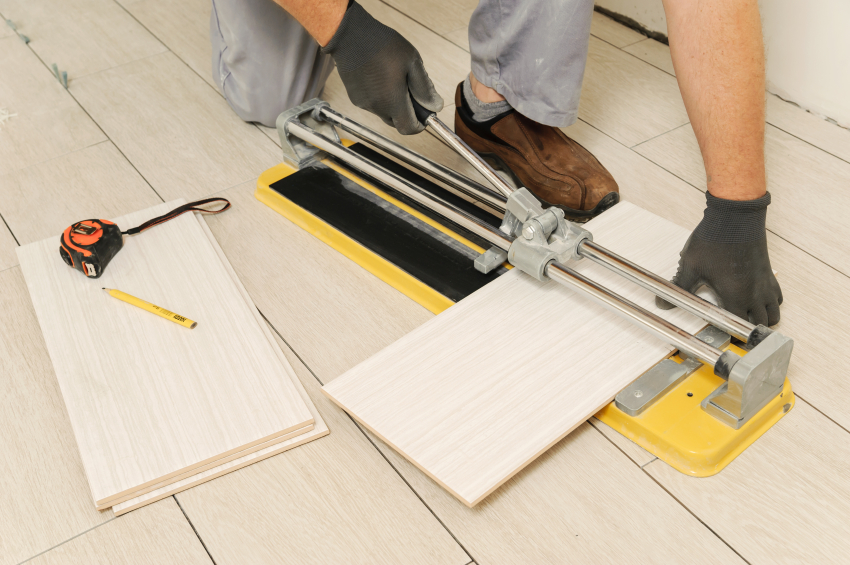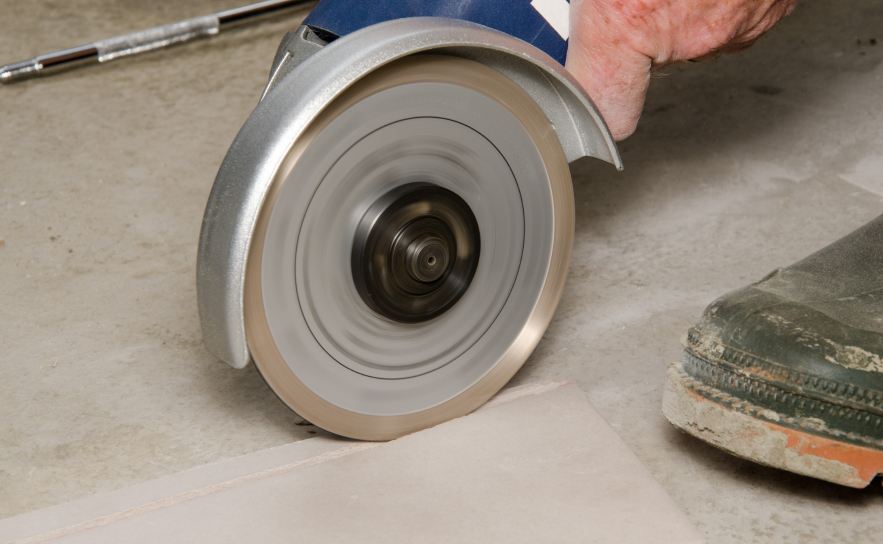Renovating rooms in your home can give your property a fresh new look! But getting that showroom look takes time to get it just right, which is why it’s always best to be as prepared as possible so that your project doesn’t end up going awry or taking months to complete! Of course, when undertaking any DIY project in your house, you need to have a plan in place; from measuring your workspace to choosing the right mixture to fit your tiles with.
With these preparations in place, the job should go a whole lot smoother, but nothing slows a job down more than not having the proper tools at your disposal. So, before you start pasting and laying your tiles, just double check to see whether you have the correct cutter for the job. There are two types of cutters to choose from; a manual and an electric cutter, and each have qualities that suit different tile materials and different tiling projects.

Manual Cutter
The first thing to take into consideration is how big of a job your tiling is going to turn out to be. If you’re tiling a smaller room, then a manual tile cutter might be the best piece of equipment for the job. Manual tile cutters tend to be cheaper than an electric power tool as they don’t need to be built with as much strength and reinforcement.
Small scale jobs which require precision cutting would require a manual cutter, as smaller, more delicate tiles are easier to cut with manual strength. A manual cutter is usually a straight lined piece of equipment made of steel with a tungsten carbide cutting wheel; ideal for home DIY jobs but perhaps not suited to larger scale projects using heavier tiles.
Electric Cutter
Electric cutters naturally have a lot more power behind them, and so can cut through thicker, heavier tiles made of stronger materials. Similar to an electric saw, an electric tile cutter can grind through tiles of ceramic and stone with ease, and it also has the ability to cut tiles in different shapes, other than just a straight or diagonal line like with a manual cutter.
Electric cutters are perfect for larger jobs and are most commonly used for commercial projects, for example, floor tiles for company buildings, or residential household flooring projects.
Other Cutters
You may find that you need to use other utensils to achieve the desired finish, such as an angle grinder and tile nippers. An angle grinder is usually a handheld device with the ability to not only cut through tiles, but to also polish tiles. This multi-purpose tool can be used for small projects on its own or as a handy extra for any small finishes that need to be made.
Tile nippers are handy for making finishing touches and cutting off uneven or jagged edges of tiles, and not for cutting whole tiles as they act purely to create cleaner edges after your tiles have been cut.
As tile suppliers in Preston and Bolton, Roccia has a range of materials and designs to choose from to suit any project, whether you’re tiling your kitchen at home, or are planning to pave an industrial space. If you have any enquiries about our products, don’t hesitate to get in touch with us at 01772 382616 for further information.

























Leave a comment
This site is protected by hCaptcha and the hCaptcha Privacy Policy and Terms of Service apply.